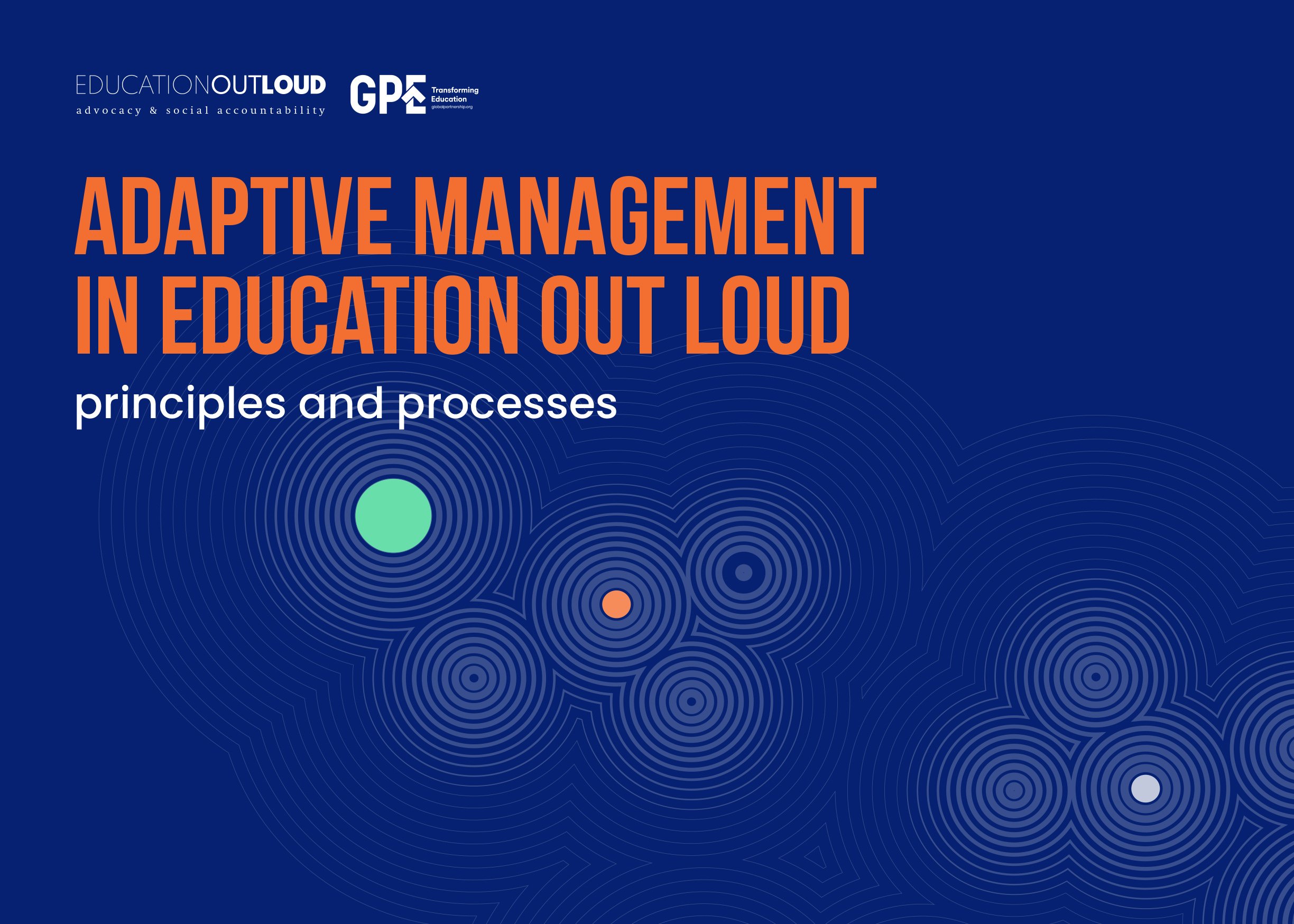
Education Out Loud offers a new guide to promote adaptive practices among civil society organisations
Adaptive management is an important and powerful way to maximise the impact of Education Out Loud activities and ensure that civil society action on education reform remains relevant.
For Education Out Loud, adaptive management is about how we adjust our strategies, plans, and activities in response to external changes, new information, or new knowledge. It involves regularly reviewing whether we, as civil society organisations, are still doing the right things to achieve our aims.
Example: A new high-level committee is established to address girls’ education. This opens new opportunities and requires new strategies to reach and influence members of that committee with civil society evidence. This is an example of the kind of project adaptation that Education Out Loud supports.
With input from the Institute of Development Studies, University of Sussex, Education Out Loud has developed a set of principles and processes to encourage grantees to embrace adaptive management. The guide explains what we mean by adaptive management, why it is important, and how it links with other key processes such as learning, risk management, and monitoring & evaluation. It also outlines how grantees can adjust their plans to respond to a changing world.
👉 Adaptive Management in Education Out Loud – Principles & Processes
Also available in French, Spanish, and Portuguese.
